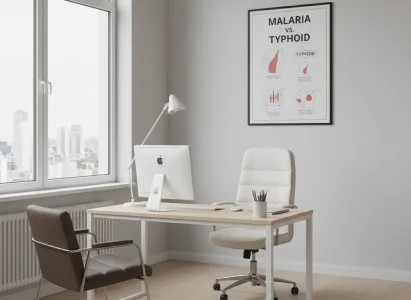
The moment a headache and fever strike, the temptation in Nigeria is to bypass the clinic and head straight to a chemist's shop for a quick pack of antimalarials. This practice, self-medication based on symptoms, is driven by convenience and the desire to save time, but it has created a dangerous cycle that costs families dearly.
The reality is that these symptoms are also common to viral infections or typhoid (as discussed in Part 2). When you self-medicate, you are often taking a powerful drug you don’t need, wasting money, and delaying treatment for the real illness.
The Hidden Costs
Self-medication rarely saves money. The hidden costs can be significant:- Financial Waste: Buying three packs of different antimalarials, cough syrups, and pain relievers based on guesswork often costs more than a single visit to a clinic for a test (which is usually free at PHCs) and the correctly prescribed, subsidised medication.
- Drug Resistance: Taking incomplete or unnecessary doses of malaria drugs (ACTs) teaches the Plasmodium parasite to survive the treatment. This accelerates drug resistance, making future cases more complex and more expensive to treat for the whole community.
- Missed Diagnosis: Delaying a proper test allows severe, rapidly progressing malaria to progress unchecked. This is the primary pathway to fatality, especially in children.
Own Your Health
The solution is simple: Trust the Test.Make the Primary Health Centre (PHC) your first stop, not your last resort. PHCs offer affordable or free Rapid Diagnostic Tests (RDTs) or microscopy. A confirmed positive test means you get the correct Artemisinin Combination Therapy (ACT) dosage required to clear the infection completely.
Moving from treating symptoms to treating a diagnosis is the most crucial step towards owning your health, saving money, and protecting your children’s future.



